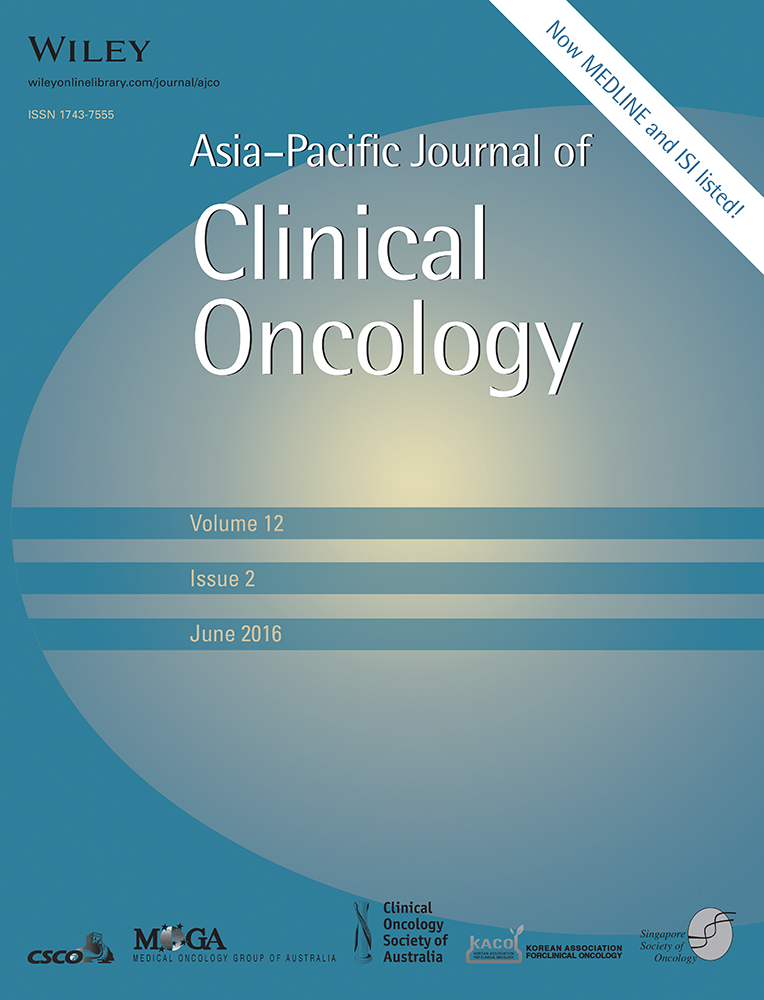Docetaxel-based adjuvant therapy for breast cancer patients in Asia-Pacific region: Results from 5 years follow-up on Asia-Pacific Breast Initiative-I
Abstract
Aim
To acquire patient characteristics, safety, relapse and survival outcomes of early-stage breast cancer patients receiving docetaxel (Taxotere(R))-based regimen in adjuvant setting from the Asia-Pacific region.
Methods
This was an open-label, international, longitudinal, multicenter, observational, prospective cohort of consecutive early breast cancer (EBC) patients with a high risk of recurrence being treated with various docetaxel-containing anthracycline and non-anthracycline adjuvant regimens during 2006−2013.
Results
In this study, 1542 patients were enrolled. Anthracycline-containing regimens were administered in 92% of patients, while 8% of patients received non-anthracycline-containing docetaxel-based regimens. The mean dose intensity of docetaxel was 25.8, 22.4 and 25.4 mg/m2/week among patients receiving docetaxel-based monotherapy, combination and sequential therapy, respectively. Adverse events were reported in 94.9% of patients (anthracycline vs non-anthracycline regimen; 95.1% vs 93.5%). Serious adverse events were reported in 12.6% of patients (12.4% vs 14.6%). Grade 4 neutropenia was reported in 25.2% of patients (24.7% vs 30.9%) and febrile neutropenia in 1.9% of patients (2% vs 0.8%). Only 7% of patients had a relapse or a second primary malignancy. At 5-year follow-up, there were 127 (8.3%) deaths (8.4% vs 6.5%).
Conclusion
The Asia-Pacific Breast Initiative-I registry highlights the important patient and treatment characteristics of EBC patients treated with adjuvant docetaxel chemotherapy from the Asia-Pacific region that will help physicians to understand the impact of different docetaxel treatments on the clinical outcomes in this population.




